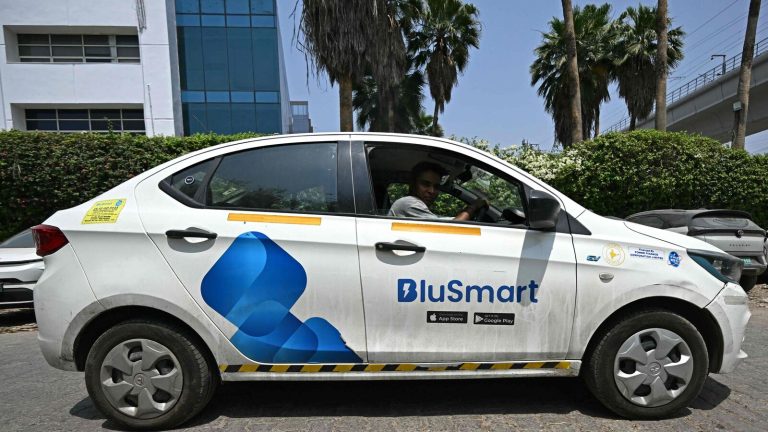The Delhi high court has ordered the seizure and relocation of 129 electric vehicles leased by Gensol Engineering and ride-hailing startup BluSmart, acting on a petition by lender STCI Finance.
The lender alleged that the companies had defaulted on a ₹15 crore equipment loan and were attempting to unlawfully dispose of the financed assets.
Justice Manmeet Pritam Singh Arora, in her order on Thursday, 8 May, barred Gensol and BluSmart from creating any third-party rights over the vehicles. Citing an urgent risk of asset dissipation, the court appointed receivers to take custody of the vehicles and authorized them to arrange for their maintenance and charging to prevent deterioration.
The court also directed ICICI Bank to maintain status quo on a fixed deposit of ₹40.62 lakh. The STCI Finance has stated that Gensol created a fixed deposit of ₹40.62 lakh with ICICI Bank, and this amount was pledged as security for the loan.
The vehicles were financed under a loan agreement dated 19 October 2023. According to STCI Finance, funds were disbursed directly to vendors, after which Gensol leased the vehicles to BluSmart—a related party that has since ceased operations.
Following loan defaults and a credit downgrade, STCI recalled the loan on 29 April 2025 and is now seeking to recover ₹11.25 crore.
The court also took note of findings by the Securities and Exchange Board of India (Sebi), which alleged that Gensol’s promoters had diverted company funds and treated the listed entity as a proprietary concern, in violation of corporate governance norms.
Also Read: State-run lenders for Gensol’s cars dither on what to do next
Series of Court Orders
Thursday’s ruling is the fourth in a series of court orders passed by the high court in under two weeks, offering judicial protection to a growing fleet of leased electric vehicles allegedly at risk.
Just a day earlier, on 7 May, the court barred Gensol, BluSmart, and their promoters from creating third-party rights over 220 additional EVs leased from two separate lessors—SMAS Auto Leasing India Pvt. Ltd and Shefasteq OPC Pvt. Ltd. Both lessors have accused the companies of breaching lease agreements and defaulting on payments.
On 25 April, the court restrained Gensol and BluSmart from alienating 175 EVs leased by Japanese financial services firm Orix. This was followed by another order on 29 April, barring BluSmart from transferring or selling 95 EVs leased from Clime Finance Pvt. Ltd.
With the latest directive, a total of 622 leased electric vehicles are now under judicial protection, with the court expressly prohibiting their sale, transfer, or assignment to third parties.
Mounting Financial and Regulatory Pressures
The mounting legal troubles come amid growing regulatory scrutiny. Sebi recently issued a show-cause notice to Gensol and its promoters for alleged corporate governance violations, including undisclosed related-party transactions and financial irregularities.
The regulator has also barred the company’s promoters—brothers Puneet Singh Jaggi and Anmol Singh Jaggi—from holding key managerial positions in any listed company, and restricted both Gensol and its promoters from accessing capital markets.
Meanwhile, Gensol faces investigations over the alleged misuse of approximately ₹978 crore in loans disbursed by Power Finance Corporation (PFC) and Indian Renewable Energy Development Agency (Ireda) for the purchase of 6,400 EVs. Company disclosures indicate that only 4,704 vehicles were procured.
PFC has filed a complaint with the Economic Offences Wing of the Delhi Police, alleging that forged documents were used to secure the loans. Ireda, which financed 3,400 EVs, may be short over 1,400 vehicles based on current filings.
As previously reported by Mint, PFC is exploring multiple legal options, including insolvency proceedings and debt recovery tribunal filings, to recover its dues.
Also read | BluSmart investors look to buy promoters’ stake, revive the ride-hailing company


